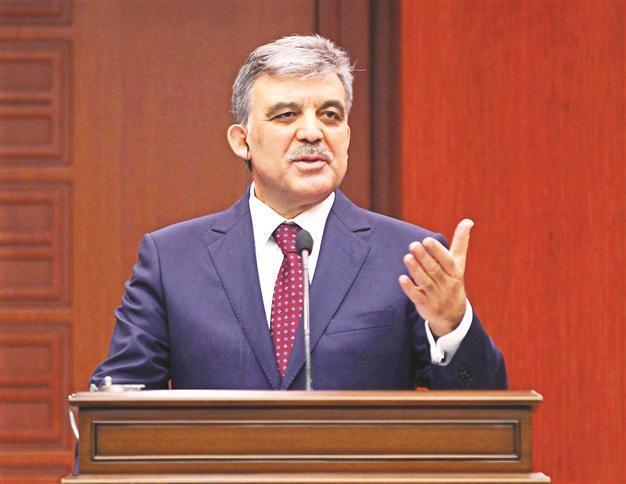Avoid word pollution on talks: Turkish president
ANKARA

All methods can be used to eliminate terrorism in Turkey, says Gül. AA Photo
President Abdullah Gül and Parliamentary Speaker Cemil Çiçek have urged relevant parties to make fewer comments on negotiations between the government and Kurdish militants in an effort to safeguard the nascent talks, which have been dubbed the “İmralı process.”“There are [people] who should keep somewhat quiet. There are [people] who should perform their work instead of talking. Let us follow up. If there is sincerity around, then we will see it. I would like everybody to trust in all institutions of the state on this issue,” Gül said yesterday in his first remarks about the talks since Jan. 3, when two Kurdish deputies visited Abdullah Öcalan, the imprisoned leader of the Kurdistan Workers’ Party (PKK), on İmralı island.
The comments were echoed by Çiçek. “As we have seen in other countries’ practices, this is not an issue that will be talked about every day at Güvenpark,” Çiçek said, referring to a popular park in Ankara. “Does everybody need to talk about this sensitive process? There is a need to act sensitively.”
Gül said all methods could be tried in an attempt to eliminate Turkey’s terrorism problem.
“There is new work that we have witnessed. Those who play a role within this process know what they need to do. Let me say just this. If they act honestly and do what they need to do, then these grievances will end. But as the state, our ultimate target is to eliminate this grave issue facing Turkey,” Gül said in response to questions from reporters during a visit to the western province of Afyonkarahisar. In a democratic country like Turkey, everyone is free to express whatever he believes, Gül said.
Çiçek, meanwhile, said terrorism had become a sector from which many people benefit, meaning that many do not want to see an end to the violence. “Some troubles may arise during this process thanks to the desire to not want to see [terrorism] end. In response, we should all be calm and help the issue be understood well. Information should be given when needed. You will ask for it from the authorities and deliver it to the citizens,” Çiçek told reporters during a meeting with members of the Parliamentary Correspondents’ Association.
Ruling Justice and Development Party (AKP) Deputy Chair Hüseyin Çelik, meanwhile, warned that society should be prepared for provocative actions conduced in a bid to sabotage the ongoing process.
Commenting on the latest attack of the PKK in the eastern province of Hakkari, which left one soldier dead Jan. 8, Çelik said more tragic events might have occurred if intelligence had not been received in advance.
“If intelligence over the Hakkari attack had not been received beforehand and if our security forces had not acted quickly, we would have faced an incident similar to ‘the 33 martyrs incident’ of 1993,” Çelik said.
“The 33 martyrs incident” refers to a deadly PKK attack on May 24, 1993, in Bingöl. More than 150 PKK militants stopped two buses carrying unarmed soldiers in civilian clothes who had recently completed training and were being deployed for compulsory military service. The PKK killed 33 soldiers. The attack came at a time when a general amnesty for PKK members was being publicly debated because the PKK had announced a unilateral cease-fire in March of that same year.
















